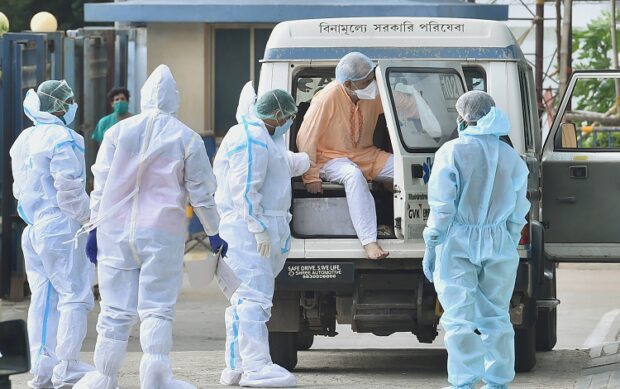
In the difficult time after the loss of a loved one, lots of decisions need to be made. Although some of the legalities surrounding the disposition of remains are confusing, it is not impossible to figure out how to transport a dead body to another state, although actually carrying out that transport often requires the assistance of a funeral director.
Consider Cremation
When it comes to the transportation of a body, one fact is clear: transporting cremains is a lot less complicated and less expensive than transporting a corpse. Cremains can legally be shipped in the US Mail, but they have to be shipped Priority Mail Express or Priority Mail Express International. The package must be marked with label 139 as ashes or cremains. A cremated remains kit can be ordered free of charge from the US Postal Service and consists of a sturdy box and everything that is needed to package cremains for shipping through the postal service.
If the cremains need to be shipped to another country, the designating country must not have any laws that prohibit the contents from being sent there. The USPS website has a list of the countries that permit this, and post office employees should be able to assist you in finding that information as well. Priority Mail Express International service must be available to ship to the destination country.
If cremains must be flown to the destination, the TSA has specific rules about bringing cremains on board a passenger aircraft. If carrying the ashes as cargo, some carriers require special documentation such as a death certificate. If carrying on the cremated remains, a special container that can be x-rayed is necessary. TSA agents may not open urns to inspect cremains, but the urn will be x-rayed as part of a standard security check if they will be manually carried on the airplane for transport.
The easiest way to transport cremains is to transport by train or in a car, which has no special rules or specific fees that need to be met.
Basic Rules of Transporting Your Deceased Loved One
Shipping a body can be costly and can cost up to $15,000 or more if the remains need to be shipped internationally.
Domestic Shipment
If transporting a deceased person within state lines, there are some basic rules that must be met. When transporting across state lines, there are potentially a lot more rules that come into play, depending upon the state. Certain states require that the body in question be embalmed or refrigerated before transport. If you plan to transport a body across state lines, enlisting the help of a funeral home is the simplest way to achieve this goal. Funeral homes will transport the body of a loved one, and usually, the fee is based upon the distance of the end destination.
Moving a body by family vehicle is not unheard of, but may require the body to be embalmed, and proper paperwork needs to be with the remains as the body is deposed to the final resting place. The state police of any states that are traveled through must be made aware of the transport of the body, as well.
A cost-effective way of transporting a body that many people do not immediately think of is by train. Most train lines, including Amtrak, require the service of a funeral director at the beginning and end destination of transport.
If airline transport of a body is an option, once again, the help of a funeral director that is a “known shipper” to the airline to arrange the transport with the airline will be helpful. In most cases, you will also need a funeral director to collect the body at the destination. Airline fees to transport a body generally costs between $300-$500 to bring the body from one major airport to another. Funeral director fees will also apply.
International Shipment
Rules for moving a body from one country to another vary greatly. The help of a funeral director that is listed as a “known shipper” to the airlines is a good start to get the job done. Another good resource that can be accessed by anyone with questions is the consulates for the countries in question.
Anyone who is concerned about passing away while abroad, and making the passage of the body to the intended place of burial as easy as possible should look into specialized insurance that is available to tourists in the special instance that they pass while traveling.





